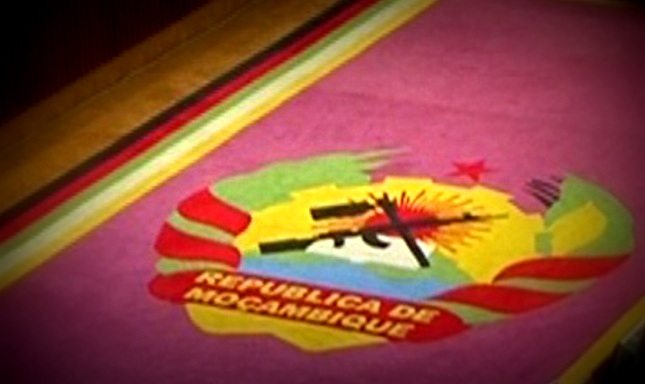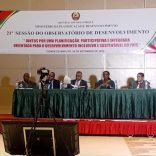Mozambique: Population seen growing by 10 million between censuses to 36 million in 2027
Mozambique: Government wants legal cap on public debt, currently over 74% of GDP

File photo: TVM
Mozambique’s government wants to set a legal limit on public debt, which in 2024 reached 74.20% of gross domestic product, with the measure set out in the government’s Five-Year Programme (PQG), to be discussed by parliament.
The document, consulted by Lusa and which will be discussed in the coming weeks during the first ordinary parliamentary session of the legislature, which began last Wednesday, provides for a programme of “macroeconomic stability” until 2029, which “aims to guarantee a stable, balanced and sustainable macroeconomic environment, emphasising financial inclusion, stimulating domestic savings and investment.”
Among the measures are: “Restructuring the existing public debt to more favourable conditions and establishing clear limits for public indebtedness,” as well as broadening the tax base, promoting “equity in the application of revenues from the exploitation of natural resources” or “renegotiating” these concession contracts.
The programme’s “strategic actions” also include the implementation of “rigorous measures and efficient supervision of the financial sector” to “promote transparency, inclusion and the responsibility of financial institutions”, as well as “increasing efficiency in revenue collection and management and combating tax evasion,.. containing public spending [and] consolidating the reform of public finance management.”
Other priorities for action are: “Offering incentives for long-term savings and investments and strengthening the population’s financial education.”
The macroeconomic stability targets of the PQG 2025-2029, the first of the government overseen by the current president, Daniel Chapo, who took office in January, point to state revenues rising from 24.6% of GDP in 2024 to 25.4% in 2029, cutting state spending from 35.40% to 32.88%.
The public debt stock is expected to fall from the equivalent of 74.2% of GDP in 2024 to 60.8% in 2029, given the expected average annual economic growth of 4.6%, compared to 1.9% last year.
The Bank of Mozambique warned this week that the pressure on domestically issued public debt continues to worsen, having increased by 11.6 billion meticais (€168.7 million) since the last assessment released by the central bank two months ago.
“The pressure on domestic public debt continues to worsen,” says the central bank in its report on the meeting of the Monetary Policy Committee (CPMO), which took place on Wednesday in Maputo.
It adds that domestic public debt, excluding loan and lease contracts and outstanding liabilities, stood at 447.2 billion meticais (€6.505 billion) at the end of December, an increase of 31.7 billion meticais (€461.1 million) in debt issued domestically in 2024.
At its previous meeting on 27 January, the CPMO had already noted the same pressure on domestic debt and had so far counted 435.6 billion meticais (€6.337 billion), implying an increase of 11.6 billion meticais (€168.7 million) by this week’s assessment.
This alert coincides with the decision by financial rating agency Standard & Poor’s (S&P), which downgraded Mozambique’s domestic public debt issues to Partial Default, due to delays in payments to creditors and changes to a debt issue, as reported by Lusa on Monday.
“This means that we are left with an almost speculative debt instrument,” noted the governor of the Bank of Mozambique, Rogério Zandamela. “If it’s speculative, few investors will want that bond, that instrument, in their portfolio.
“It undermines investor confidence,” he went on. “This has implications for access to external credit for families, companies and the state.”
He emphasised the possibility that some investors will want to “get rid” of the Mozambican debt securities in which they have already invested.












Leave a Reply
Be the First to Comment!
You must be logged in to post a comment.
You must be logged in to post a comment.